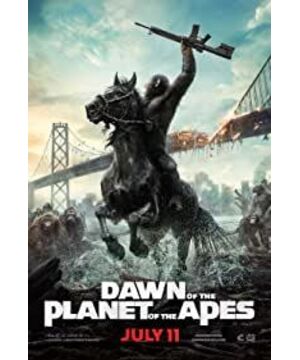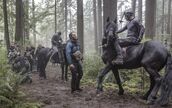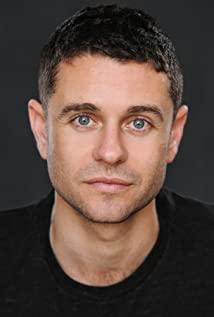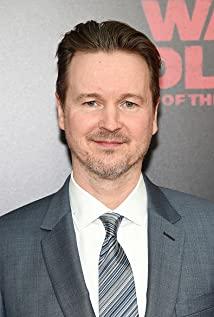Everyone has quite complicated metaphysical interpretations of this sentence, but there is one The epistemological metaphor is very vivid: "A vulgar thing who does not understand the charm of love in his real life may not understand how Craiopetra's tears caused a dynasty to fall." In this metaphor, the first half of the sentence corresponds to It refers to "contemporary history", and the second half of the sentence corresponds to "history".
And when I saw this sentence, somehow, I thought of the sentence in "The Future Will Be Unexpected", "After listening to a lot of great principles, I still can't live this life well". These two sentences seem to resonate somewhat naturally. History is always unfolding, and life is often powerless.
The past, present and future are all relative, so it is natural that we can take Croce's words to a whole new level: future history. In fact, the construction of future history (or overhead history) is an important form of expression of science fiction works. This method relies on history, and its stories are more true and logical within a certain era and culture. It is easier to understand by readers, and it is easier for readers to resonate. "1984", "Song of Ice and Fire", "V for Vendetta", "District Nine", the old version of the "Ape Ball" pentalogy, etc. are all included in this category.
The new series of "Rise of the Planet of the Apes" (2011) and "Dawn of the Apes" (2014) (without a doubt, this blockbuster series will continue) can be regarded as masterpieces in future history. Because this series did a very important point: calm and objective. On the one hand, this can be regarded as a natural advantage of future history: contemporary people do not write contemporary history because they are related to their interests and emotions, making it difficult to be objective; even if they write past history, it is inevitable to dress up for various purposes. On the other hand, future history is not easy to be calm and objective. A splendid movie like "Avatar" inevitably slides on the road to completely ugly human beings. It relies on self-blaming to gain the pleasure of venting, and brings out a few saints to worship.
"Dawn of the Planet of the Apes" does not. To illustrate this point, some frantic spoilers will be made below.
The leaders of the two races of the orangutans are rational, kind and qualified masters, seeking the best interests of their own race, and are unwilling to invade others. There is a great chance that the two races will go to war. This is the good brother of the ape leader Caesar, Coba, who had long accepted human inhumane experiments before becoming smart, so he had an unforgettable hatred for humans, and eventually assassinated Caesar, blamed mankind, and led the tribe to war against mankind. On the human side, it can be seen that although they are jealous of these rising stars who were originally locked up in cages for people to enjoy, but are now riding horses and throwing long hairs, they do not intend to launch war in the short term.
However, once this contingency is triggered, history will embark on a fixed path, inevitably running towards the ultimate destiny: you die or die. Just as Caesar said after defeating Coba and ending the ape race's attack on humans: "Humans will not forgive." This is the historical tragedy expressed in this series. It is worth mentioning that the old five-part "Sorrel Ball" has even formed a closed time loop through time travel, accentuating this tragedy.
The plot of the movie is brand new, but the shadow of the past can always be seen. When comparing humans with apes, they pointed out that the ape tribe can live a very comfortable life simply and can fight simply, but humans cannot. I can't help but think of the barbarians' invasion of a declining civilization in human history. In particular, the climactic ape cavalry raided the human territories of San Francisco, and even relied on the scenes of flexibly moving to complete the explosion of human armored vehicles.
This movie has portrayed a high-quality ape leader Caesar, who is sane, rational, and compassionate; but I prefer the human leader Drivers portrayed by Gary Oldman. Caesar's ruling environment is very comfortable, while Drivers's is terrible, because dying humans are in a state of hysteria all the time; when human energy is about to run out, even though everyone distrusts the apes, he still allows " Zhuhe sent Malcolm to negotiate with the Ape Clan about opening the dam in the Ape Clan’s territory; when the Ape Clan attacked wildly, he led the militia to resist and severely inflicted the Ape Clan, showing superb command and tactical skills; when When the ape tribe captured human territory, he and a few people went underground and found that the ape tribe were all gathered on the tower, so he came up with a plan to blow up the tower and strike back, and it almost succeeded.
He fully proved to the world (and the apes) that the skinny camel is bigger than the horse, and your apes want to fight with us human beings. He also showed the leader’s tenderness of the iron man. In this passage, I would like to praise Gary’s acting skills. : When the hydropower station was put into operation and the human energy crisis was lifted, his ipad turned on, he couldn't wait to grab it and flipped to the photo album. First, I gave a few shots of photos: a group photo of comrades-in-arms, a family photo, and a child. At this time, the camera turned to his face. Gary gave a short smile, then sobbed, then grinned a few more times, and finally took off his glasses and covered his face and wept bitterly. A few simple repetitions vividly portray the loneliness and grievance of a doomsday leader.
The only stain in Drivers’ life was that he did not believe that Malcolm said Caesar would end the invasion when he bombed the tower. After he roared "They are beasts!", he detonated the bombs around him and brought them with him Two of his subordinates were sacrificed. And he himself, and the sacrifices of these two men, can actually be avoided. Having said that, even if Drivers has the limitations of the times, what can we expect from him? He is nothing more than an ordinary person who is in danger and picking up heavy burdens. It is such a flesh and blood leader that makes people even more sigh.
Ironically, Caesar escaped the collapse of the tower by virtue of the protagonist's halo and took the opportunity to get rid of Coba. From this point of view, Rivers ultimately failed to resolve this human threat.
After the chaos ended, Malcolm and Caesar stuck their heads together. Malcolm wanted to cry without tears: "I thought we had a chance." Caesar was disappointed: "I thought too."
Caesar once naively thought that humans would destroy humans themselves, but the apes would not; the rise of the apes Let him think that the apes are superior to humans, but Coba's hatred and selfishness broke his illusion. He found that "we are so alike". The ape race is going back to the old path of mankind.
At this moment, a greater crisis is coming: the human military base in the northern United States has received a distress signal from San Francisco, and fully armed soldiers are ready to go.
The dawn comes, this is the dawn of the apes. Caesar also knew that the war was about to begin. He looked back suddenly, his good friend Malcolm was gone.
The wheel of history has passed by mercilessly, and a greater disaster for the two races has arrived. At the crossroads of history, the two tribes once again repeated the mistakes of their predecessors.
...
What can be said?
Sometimes, I wish to believe that Italians, who have repeatedly sold cuteness in history, have long understood the meaning of life and the world. That crazy, silly, silly, is for us laymen.
View more about Dawn of the Planet of the Apes reviews











